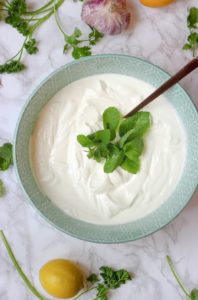With the uncertainty of when the Oxford University AstraZeneca coronavirus vaccine trials will come to Australia, it’s important that we focus on taking care of our bodies and know how to best fuel ourselves. We can do this through eating healthy foods that are jam packed with the right vitamins, minerals and probiotics.
Your immune system is your body’s first responder, it is the body’s defence against infectious organisms and other invaders.
When your immune system is strong, it reduces the impact of bugs attacking your body. A healthy immune system runs on regular nourishment and those who are malnourished are more vulnerable to infectious diseases.
Here are some foods which are brilliant for improving your immune system.
Oranges
Oranges are packed with vitamin C, an essential nutrient when you’re feeling under the weather. According to a review conducted by the National Centre for Epidemiology and Population Health, at the Australian National University, vitamin C is helpful in preventing the common cold for people exposed to sickness-inducing environments, such as cold weather, and can help lower the duration and severity of a cold.

Ginger
Ginger is filled with vitamin B3 and B6 and is said to ease nausea, and similar to raw honey, has antimicrobial and anti-inflammatory properties. For the best benefits, choose fresh ginger root. Slice or grate and add to tea, broth or juice.
Yogurt
Yogurt contains probiotics that fight viral infections. “Yogurt is rich in probiotics, the good bacteria that support gut health,” says Palinski-Wade author of 2-Day Diabetes Diet.
According to a study published in May 2017 in Nutrients, eating yogurt daily can improve immune function because it increases the body’s production of antibodies that fight off viruses. To avoid added sugar, choose plain, unsweetened yogurt such as Greek yogurt.

Mushrooms
Have you ever overlooked the benefits of the humble mushroom? Mushrooms are high in selenium and vitamin B such as riboflavin and niacin. These minerals and vitamins are necessary for the immune system to work in its best form.
Turmeric
Curcumin, the natural compound in turmeric is a potent anti-inflammatory compound. Turmeric has been shown to boost immune cell activity and enhance antibody responses. Combining turmeric with black pepper activates the curcumin and significantly increases its effect. Sprinkle a turmeric black pepper combo onto a smoothie, soup, broth, or cooked veggies.
Honey
Not only can its soothing texture help relieve a sore, itchy throat, but honey is considered a natural cough suppressant and may be just as effective as over-the-counter methods.
The Iran Journal of Basic Medical Science published a review in 2013 which suggests that honey has antibacterial qualities that can help the body fight off unwanted germs.
 Soup or Broth
Soup or Broth
It’s well known that that chicken soup helps the sick when suffering a cold, and there’s science to support its benefit. The steam from soup or broth speeds up the movement of mucus through the nose to relieve congestion. A healthy soup also helps reduce inflammation.
The salt from soup or broth will cause your body to retain more water. If you don’t eat chicken, opt for vegetable broth, flavoured with add-ins like garlic, ginger, turmeric, and black pepper.
Garlic
Garlic has long been used to ward off illnesses, fight infections, and treat wounds and has immune-supporting capabilities. Garlic contains alliin, which converts to allicin when the clove is crushed or chewed. Allicin increases the cold and flu-fighting response of certain white blood cells.
In a 2001 study conducted in the UK, 146 volunteers were assigned to receive either a placebo or a garlic supplement daily for 12 weeks throughout cold season. The garlic group experienced significantly fewer colds compared to the placebo group, and they recovered faster if they did get infected.
Spinach
Spinach is a great anti-virus food due to being full of folate, vitamin A, vitamin C, fibre, magnesium, and iron. The nutrients in spinach are said to boost immune function and provide the body with necessary nutrients for cell division and DNA repair. To gain the maximum benefit from spinach, eat it raw and add it in to smoothies, salads, spanakopita or lightly cook it to preserve nutrients.







